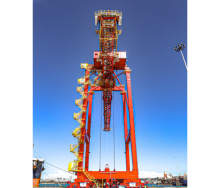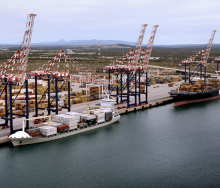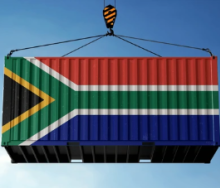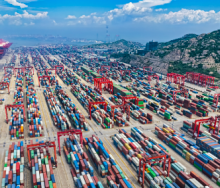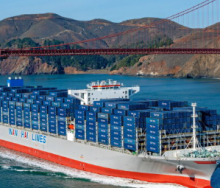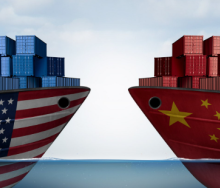Various ministers from South Africa's Government of National Unity (GNU) are toiling in full public glare, as well as behind the scenes, to secure the country's tariff-free benefits under the African Growth and Opportunity Act (Agoa).
It comes at a time when another Donald Trump victory at the ballot box, as was the case in 2016, is proving ever more likely if the latest polling data out of the US is anything to go by.
The Republican Party candidate, a fierce proponent of America-first trade conservatism, has on several occasions stated that Agoa, which is due for renewal in 2025, should not be renewed on account of foreign policy disagreements that the US has with Agoa trade partners such as South Africa.
Opening the Agoa Forum in Washington earlier this week, President Joe Biden, who has bowed out of standing for re-election, made a strong case why Agoa should be extended.
It is understood that should the new Democratic Party presidential candidate, Vice President Kamala Harris be re-elected, she will continue with long-standing policy institutions such as Agoa, implemented in 2000.
The case for continued tariff-free trade reciprocity in Washington was also taken up by Parks Tau, GNU minister for Trade, Industry and Competition, who emphasised the importance of early and long-term re-authorisation of the agreement to provide policy certainty for investors and drive industrialisation in Africa.
Back in South Africa and behind the scenes, the deputy minister from the Department of International Relations and Cooperation (Dirco), Alvin Botes, told his American counterpart via telephone that the GNU was committed to seeking peaceful solutions to the war in Ukraine and Israel's war on Hamas, the governing authority in Gaza.
South Africa's perceived support for Russia and Hamas has, in both respects, alienated senators in the US, resulting in an Agoa review bill that is currently before Congress.
If Harris loses in November, as is widely feared, it's almost a certainty that not renewing Agoa will be high on Donald Trump's hawkish agenda as he believes that to “Make America Great Again” requires a no-nonsense stance with countries suspected of being too friendly with “malign actors”.
South Africa's non-aligned policy about Russian aggression, and its litigation against Israel at the International Court of Justice in The Hague, has been forefronted by senators lobbying for Agoa to be scrapped.
For these and other reasons, South Africa's continued participation in Agoa has faced challenges in recent years due to deteriorating diplomatic relations with the US.
Besides South Africa's refusal to condemn Russia for its invasion of Ukraine and its support of the “Palestinian cause”, including a visit by former Dirco minister Naledi Pandor to Iran, twice in 2023, did not auger well for Agoa.
However, the formation of the GNU has provided a “honeymoon period” for retaining Agoa benefits, according to US politicians and trade analysts.
The GNU is seen as an opportunity to reset relations and signal a shift in South Africa's foreign policy trajectory, hence the Washington delegation led by Tau, and Botes’ call to the States.
But pulling out the proverbial stops to save Agoa won't undo the diplomatic damage done by the ANC's ideological fence-sitting over issues of international terrorism.
Donald MacKay, CEO of XA Global Trade Advisors, said it's encouraging that Tau and his fellow delegates are taking a strong stand in Washington for continued Agoa relations.
“But I don't think anything Minister Tau or anyone else does will impact our participation in Agoa. If Trump wins the election, our prospects of remaining are slim and if Harris (or another Democrat) wins, we should be ok.”
MacKay also appealed for some sober reflection about Agoa.
“To give some numbers, we export around R180 billion to the US per year, of which around R60bn is under Agoa, the cash value of which is around R2bn per year.
“The R2bn is roughly the amount of duties saved under Agoa. The US accounts for about 10% of our total exports, but that 10% of our exports amounts to only about 0.3% of all US imports. The effect of this is that our trade with the USA really matters, but they would barely notice if we disappeared.”


